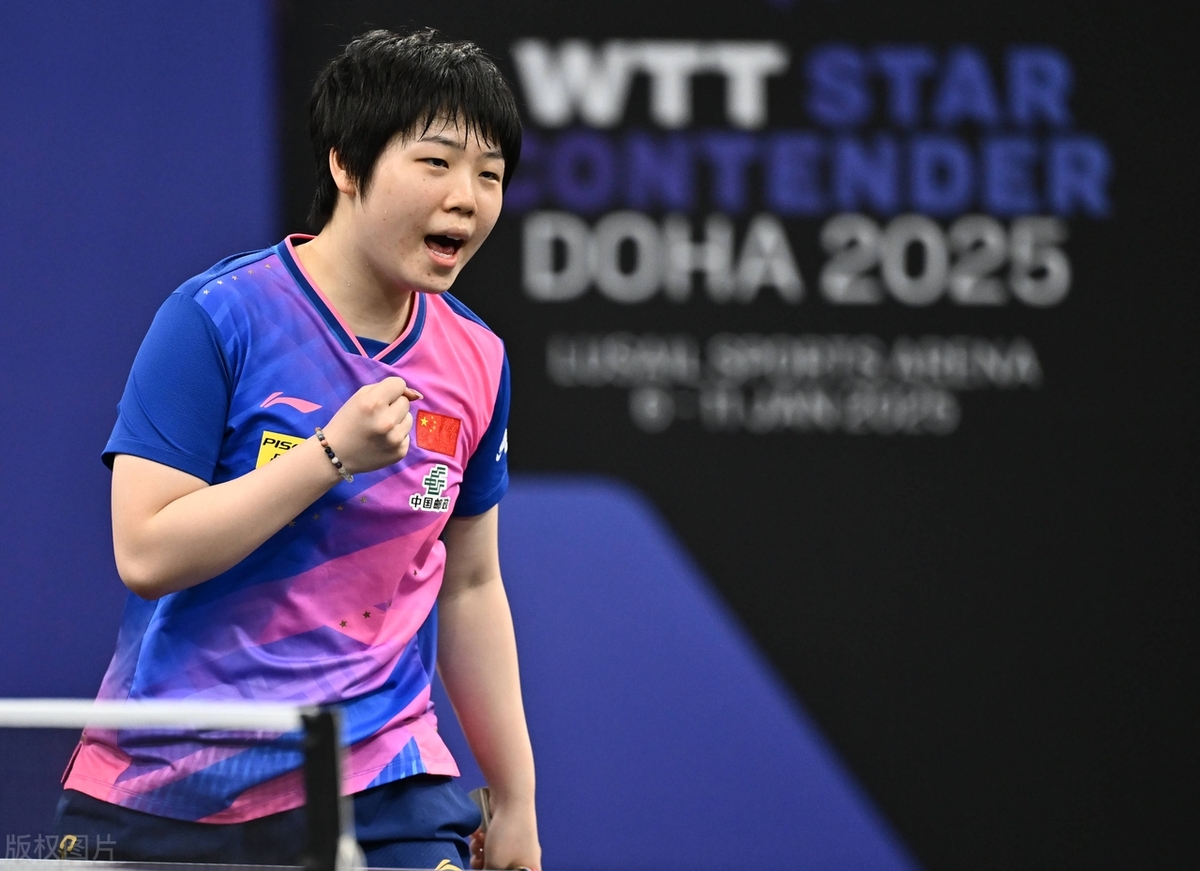On January 11th, Beijing time, the 2025 Doha Star Challenge Table Tennis Tournament entered its final day. Prior to this, three doubles titles had been decided, all featuring matches between China and Japan. The Chinese team lost to Japan in both women's doubles and mixed doubles but managed to defeat Japan in men's doubles.

The women's singles final was another battle between China and Japan, with Kuai Man facing off against Miu Kihara. It was quite unexpected that both players made it to the final, as neither of them were among the top 16 seeds, and their world rankings were not particularly advantageous. Their strength and past achievements were also not highly regarded.

In the semifinals, Kuai Man swept Nagasaki Meiyo in three straight sets, decisively defeating her opponent. On the other hand, Miu Kihara staged a comeback to defeat Chen Yi. This time, Miu Kihara became the best-performing Japanese women's singles player. Currently, the competition for Japanese women's singles is very fierce, with many young players emerging to compete for the main lineup spots. Achievements are crucial, especially since she won the silver medal in the women's team event at the World Table Tennis Championships, but her individual results have not been very impressive.

Kuai Man quickly entered the game state, with fast connections and a proactive playing style. She led 6-1 and controlled the rhythm of the match with stable performance. Her service rounds were particularly successful, only losing one point. Her rhythm changes during rallies were also good, and she took the first set 11-6.

In the second set, Kuai Man led 3-1, with an advantage in serving and receiving. Her aggressive and stable combination of offense worked well, and her tactics were executed successfully. She scored with a powerful forehand attack, leading 6-2. Miu Kihara was overwhelmed and at a complete disadvantage in the confrontation. Kuai Man easily won the set 11-3.

In the third set, Miu Kihara significantly improved the quality of her attacks, playing fiercely and fighting for points with Kuai Man, reaching 4-4. Her serve-and-volley strategy came into play again, with direct points from serve variations. However, she made mistakes later in the set, ending up 8-8. Another serve-and-volley sequence brought her two more points, and she ultimately won the set 11-8.
In the fourth set, Kuai Man started strong with a 4-1 lead, maintaining a good rhythm and able to withstand Miu Kihara's attacks. Her offensive accuracy was high, while Miu Kihara made consecutive errors, completely tilting the match in Kuai Man's favor. With Miu Kihara trailing and her mentality shaken, Kuai Man played steadily, following her own rhythm, and sealed the victory with an easy 11-3 win, sweeping Miu Kihara 4-0 to claim the women's singles title at this event.
In this match, Kuai Man performed exceptionally well with minimal mistakes and successful tactics. Her advantage in the first three shots was particularly evident, and her service rounds were also successful. Kuai Man's singles form has gradually reached its peak, especially in the semifinals and finals, where she swept two Japanese opponents to secure the women's singles title.
Judging from this tournament, Kuai Man not only has good form but has also made significant technical progress, especially in her forehand attacks and successful use of serve-and-volley strategies. Last year, she won the women's singles title at a 400-point challenge event, and this year, she has already won a title at the first event, which is a 600-point star event. This will undoubtedly boost her confidence and lead to a noticeable rise in her world ranking, solidifying her position within the national table tennis team.